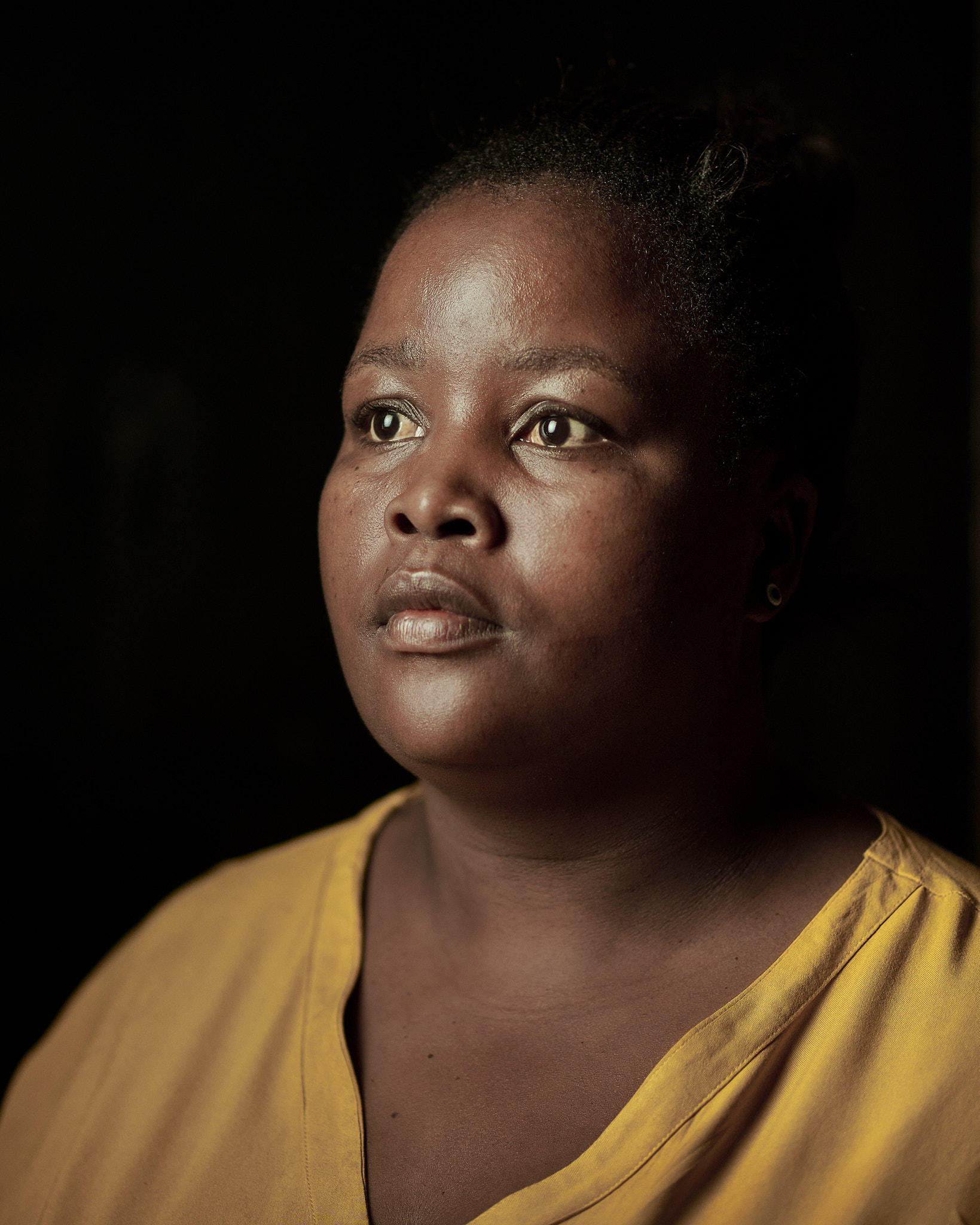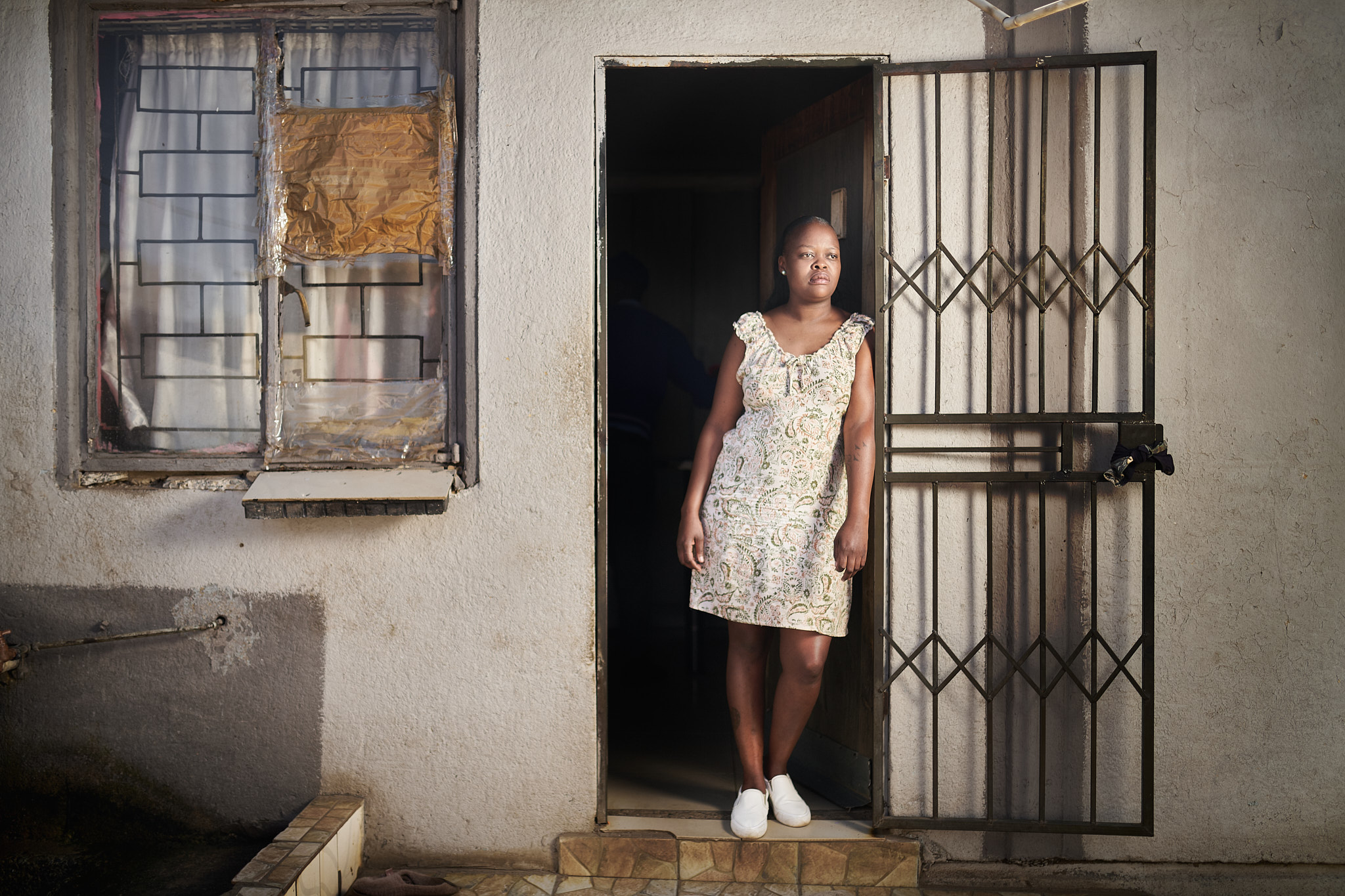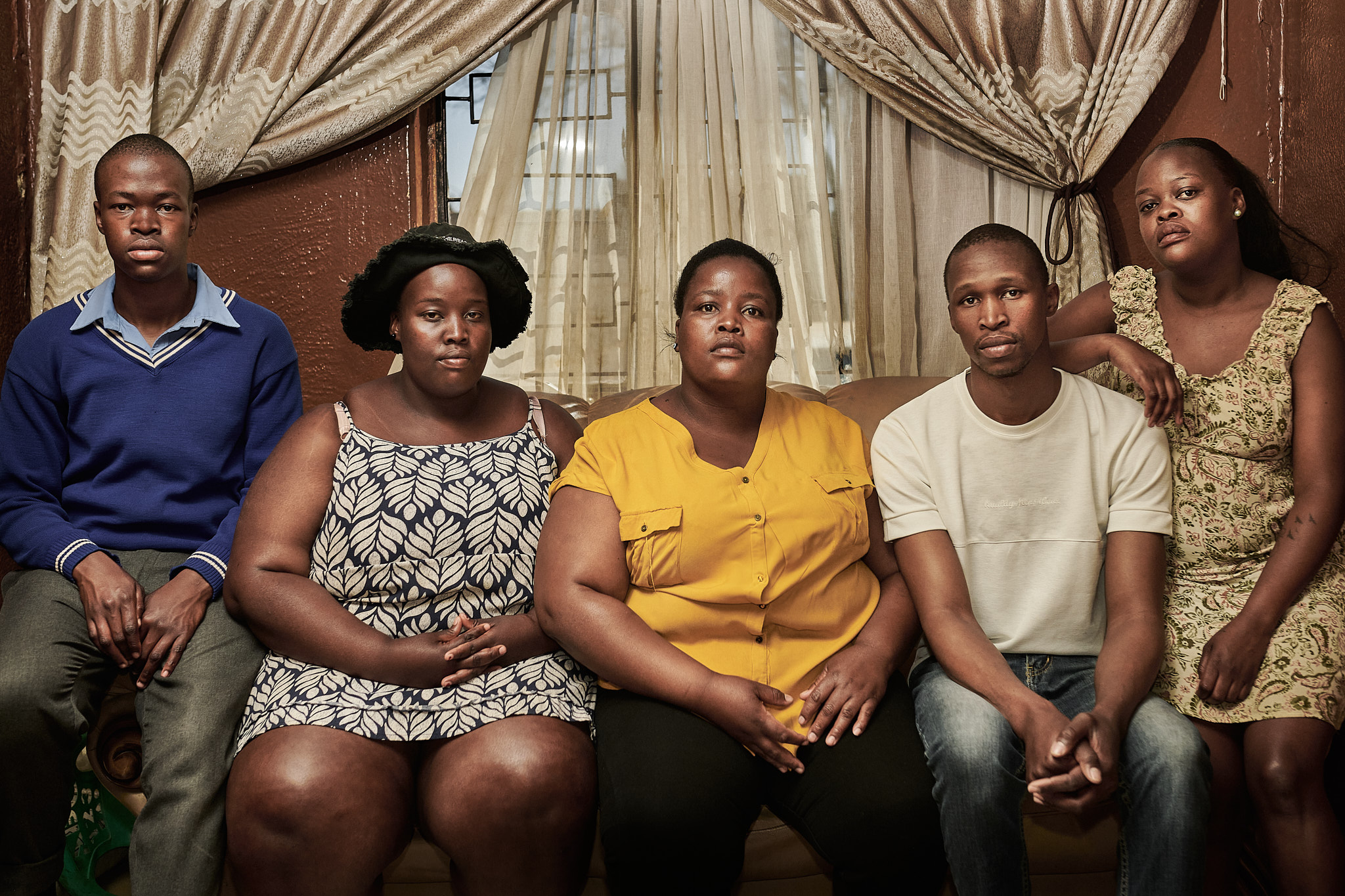‘[My mom] left me with the two youngest kids [to take care of]. I’ve had to learn to survive for them to go to school. I did what I could, but even now, we are struggling. Sometimes I wish she could just wake up, just for once, because it’s really hard... As the daughter of Nomvula Zwane, we want justice for my mother. Tiger Brands should be [found] responsible for my mother’s death.”
These were the emotional, tear-filled words of Sibongile Zwane (36), whose mother was one of more than 200 people who died after contracting listeriosis from consuming contaminated processed meat products from Enterprise Foods, a former subsidiary of Tiger Brands.
Between January 2017 and July 2018, South Africa experienced a widespread listeriosis outbreak that affected more than 1,065 people and killed more than 200. The tragedy is considered the world’s largest listeriosis outbreak.
For several months, mainstream media across the country were populated with headlines detailing the toll of the outbreak, but its origin remained a mystery. It was not until after the National Institute for Communicable Diseases (NICD) conducted contact tracing, whole-genome sequencing and epidemiological investigations that the bacteria which caused the outbreak was traced to Tiger Brands’ Enterprise Foods factory in Polokwane, Limpopo, and the nation finally had answers.
 Sibongile Zwane holds a picture of her mother on a cellphone. (Photo: Thom Pierce)
Sibongile Zwane holds a picture of her mother on a cellphone. (Photo: Thom Pierce)
Six years have since passed, but the victims and survivors of the tragedy are still struggling to pick up the pieces of their lives, which were irreversibly changed when either they or their loved ones contracted listeriosis from consuming processed meat from the Enterprise Foods facility.
Read more in Daily Maverick: ‘I wouldn’t wish for anyone to experience this’ — the listeriosis outbreak and a mother’s heartbreak
Read more in Daily Maverick: Tiger Brands on the hook as lawyers build case for listeriosis victims
Read more in Daily Maverick: Life After Listeriosis: Photo Essay
“My mother used to love polony, smoked viennas and sausages. She loved them, and she never bought just any brand, she used to buy the quality ones [Enterprise] because she would also sell to her clients. Even now, we still have questions about how [this could have happened],” Sibongile said.
 Zanele Zwane from Soweto lost her mother during the listeriosis outbreak in 2017/18. (Photo: Thom Pierce)
Zanele Zwane from Soweto lost her mother during the listeriosis outbreak in 2017/18. (Photo: Thom Pierce)
The Zwane family not only routinely ate processed meats from Enterprise Foods, but the products were also Nomvula’s bread and butter. Selling kotas – a hollowed-out quarter loaf of bread filled with a combination of atchar, polony, Russian sausages and other products – is how the mother of five made ends meet.
Sibongile and her four siblings never anticipated that her mother’s love for processed meats, specifically polony, would end up costing Nomvula her life.
They welcomed Daily Maverick into their family home and shared the tragic story of how they lost their mother and the emotional and financial strains they have endured since.
 Welcome Zwane, Nomvula Zwane's son. (Photo: Thom Pierce)
Welcome Zwane, Nomvula Zwane's son. (Photo: Thom Pierce)
An undignified death
Nomvula died an undignified death. Her final days were filled with excruciating pain and confusion because, from the moment she fell ill, she couldn’t understand what was happening to her.
When Nomvula started falling ill in September 2017, Sibongile thought it was related to her heart condition. However, as her symptoms progressed, it became clear that something was wrong.
“For about three days she was having diarrhoea, she was vomiting a lot, she had nausea, and she couldn’t eat. I used to clean her when she messed up on herself. Seeing her was very, very hard because she would have diarrhoea from morning until the next day,” Sibongile said.
It’s been tough living without my mother. It even made me drop out of school because we don’t have money.
Nomvula’s condition deteriorated so quickly that she was rushed to Chris Hani Baragwanath Hospital on 13 November 2017. She died only 72 hours after being admitted.
“I never thought she would pass on. I just thought it was diarrhoea. This is the only family we have left now, me and my siblings. All our parents have died, even our grandmother,” Sibongile said.
 Portia Zwane shows a tattoo of her mother's name on her arm. Her mother, Nomvula Zwane, died after contracting listeriosis during the outbreak in 2017/18. (Photo: Thom Pierce)
Portia Zwane shows a tattoo of her mother's name on her arm. Her mother, Nomvula Zwane, died after contracting listeriosis during the outbreak in 2017/18. (Photo: Thom Pierce)
 Sibongile Zwane, Nomvula Zwane's daughter. (Photo: Thom Pierce)
Sibongile Zwane, Nomvula Zwane's daughter. (Photo: Thom Pierce)
A family shattered
The ripple effect of Nomvula’s sudden death has shattered the family. Not only have they been forced to live without their parent, but they are severely financially strained because Nomvula was the primary breadwinner.
Amid high unemployment the older children have had a tough time finding work and are forced to make Mangiba’s child grant and the grant that third-born Welcome receives for his child stretch to sustain them all.
Sibongile said her mother’s wish was that her two youngest children, Zanele and Manqoba, would finish school. However, after Nomvula died, her second-youngest child, Zanele, had to drop out because the family could no longer afford it.
“It’s been tough living without my mother. It even made me drop out of school because we don’t have money. I dropped out in Grade 11. I couldn’t make it to matric because I was failing, and there was no money to pay for many things. I wish I could go back to school, but I can’t. I don’t think my family can afford it,” Zanele said as tears streamed down her face.
Sometimes when my friends talk about their mother, I feel pain because I feel like if my mother were here, she would be able to do the things my mother’s friends do for them.
Zanele was only 14 when her mother died. She is now 21 and says she dreams of going back to school, matriculating and obtaining a degree in cosmetology.
“I wish my mom was here because if she were, she would find a way for me to finish school and be with my peers,” she said.
Nomvula’s death has affected the youngest child, Manqoba, the most. The 17-year-old was in Grade 5 when his mother passed and has struggled emotionally and academically since.
Manqoba is frequently pulled out of school because of dire straits caused by the loss of the breadwinner.
“Manqoba has been affected very, very hard. He is very emotional, and he is very quiet. He never got counselling after my mother passed on. He should be in Grade 12 now, but you can tell after losing our mother he suffers a lot, especially in school,” his eldest sister said.
“It’s very hard on me because sometimes when my friends talk about their mother, I feel pain because I feel like if my mother were here, she would be able to do the things my mother’s friends do for them,” Manqoba said.
 Manqoba Zwane, Nomvula's son. (Photo: Thom Pierce)
Manqoba Zwane, Nomvula's son. (Photo: Thom Pierce)
 Portia Zwane outside her family home in Soweto. (Photo: Thom Pierce)
Portia Zwane outside her family home in Soweto. (Photo: Thom Pierce)
Cost of an outbreak
Tiger Brands said in April 2018 that independent laboratory results confirmed that the ST6 bacteria responsible for the outbreak had been found at its Polokwane facility. On 3 December that year, it released its last statement about the outbreak, announcing the certification of the class action and saying it was committed to “acting with honesty and integrity through this process”.
However, six years later, Sibongile feels Tiger Brands could have had more empathy for the victims of the outbreak.
“Tiger Brands have never reached out to us since our mother passed away, until today. It makes us feel so bad. It seems like they don’t care about the children she left behind. If they could have reached out and maybe could have been able to help and see how we are struggling without our mother, because I feel like this is their negligence,” she said.
Read more: ‘I wouldn’t wish for anyone to experience this’ — the listeriosis outbreak and a mother’s heartbreak
“My mother was my best friend. She was everything. Having our mother around was a blessing. They [Tiger Brands] obviously cannot bring my mother back; we have lost not only emotionally but financially, too. They need to be considerate of our situation. If they can [compensate] us, that would help, because they cannot bring life back.”
Now lawyers involved in Richard Spoor’s listeriosis class action suit say they have breakthrough evidence that makes the “overwhelming” case that Tiger Brands was responsible for the outbreak, further linking the surge in listeriosis infections to an Enterprise Foods factory in Polokwane, Limpopo. Tiger Brands was the parent organisation for Enterprise Foods. DM
Daily Maverick will this week run a series of articles and interviews with families who have lost loved ones or have been impacted by having to care for disabled children and adults.
Read more: Listeriosis tragedy ‘breakthrough’ evidence makes ‘overwhelming’ case Tiger Brands was responsible – lawyers
There will also be a webinar on Tuesday at 6pm interviewing the lawyers and activists.




 Portia Zwane stands outside her family home in Soweto, Johannesburg. Her mother died after contracting listeriosis during the outbreak in 2017/18. (Photo: Thom Pierce)
Portia Zwane stands outside her family home in Soweto, Johannesburg. Her mother died after contracting listeriosis during the outbreak in 2017/18. (Photo: Thom Pierce)